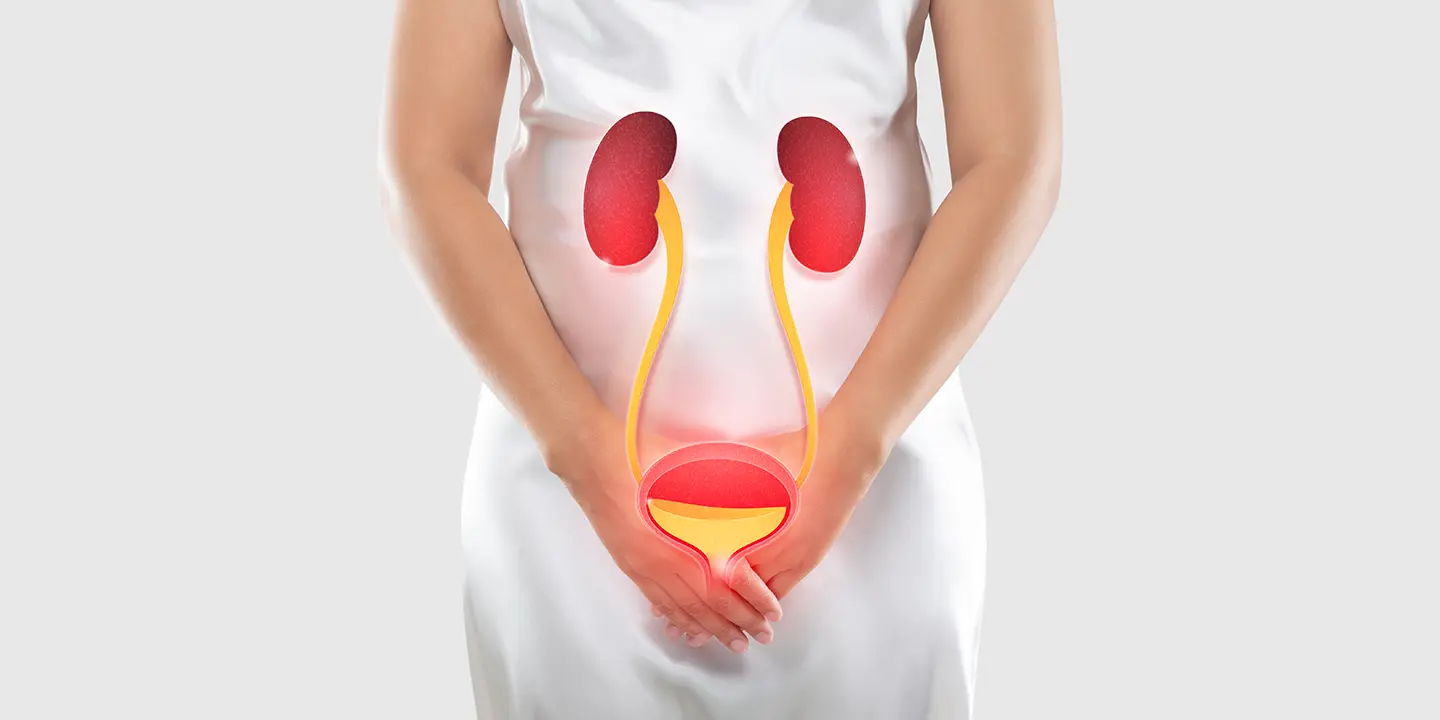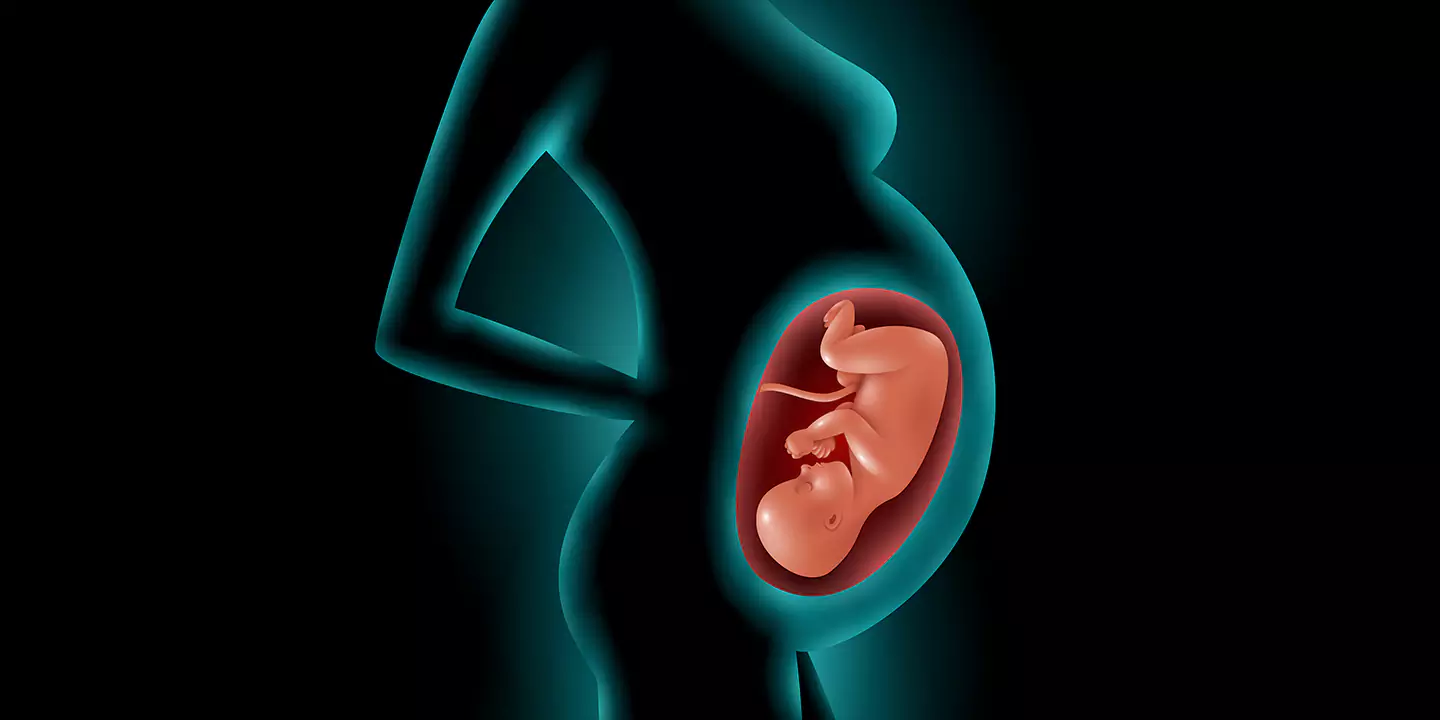
During your regular reproductive cycle, only one of your ovaries releases an egg every month. The ovaries alternate between releasing eggs from cycle to cycle. In this process, it is possible for the ovary to develop a functional cyst.
These ovarian cysts are pretty harmless and typically resolve on their own without causing any complications or issues. However, there are instances where they may rupture, leading to potential complications.
Recognizing the signs of a ruptured ovarian cyst is crucial for timely medical intervention and management.
In this post, we will examine seven common symptoms of ovarian cyst burst, empowering women to be vigilant about their health and seek prompt medical attention when necessary.
Understanding these signs can help prevent further complications and ensure optimal well-being for women with ovarian cysts.
In this Article
What Is A Ruptured Ovarian Cyst?
A ruptured ovarian cyst occurs when a fluid-filled sac that develops on the surface of a woman’s ovary bursts or tears open. Ovarian cysts are common and typically harmless, but in some cases, they can grow too large or become twisted, leading to a rupture. This sudden rupture can cause severe pain in the pelvic area, accompanied by potential bleeding and life threatening complications. The patient must be given immediate emergency medical care from a healthcare provider following the symptoms.
While most ruptured cysts resolve without intervention, some cases may require surgical intervention to manage symptoms, prevent infection, and address any complications that may arise. Timely diagnosis and appropriate care are essential for women experiencing a ruptured ovarian cyst.
Related Blog: Ovarian Cyst and its Impact on Pregnancy and Fertility
7 Symptoms of a Ruptured Ovarian Cyst
Here are seven common ovarian cyst burst symptoms you should look out for:
- Sudden and Severe Lower Back or Pelvic Pain
One of the most prominent signs of ovarian cyst rupture is intense lower back or pelvic pain. The pain may come on suddenly and can be sharp or stabbing in nature. It typically occurs on the side where the cyst is located, and in some cases, the pain may branch to the lower back or thighs. The rigor of the ache can vary from person to person, but if you experience severe and persistent pelvic discomfort, it’s essential to seek medical attention promptly.
- Pain During Physical Activities
A ruptured ovarian cyst can cause pain during certain physical activities or movements. Activities like walking, running, jumping, or sexual intercourse may exacerbate the pain. This increased sensitivity and discomfort during movement can be a sign that the cyst has burst and may require a medical evaluation to determine the extent of the rupture and the appropriate course of action.
- Abdominal Tenderness and Bloating
As an ovarian cyst ruptures, it can lead to abdominal tenderness and bloating. The affected area may feel sore to the touch, and the abdomen might appear swollen or distended. This tenderness and bloating may be accompanied by a feeling of fullness or pressure, further indicating the possibility of a ruptured cyst.
- Vaginal Bleeding
In some cases, a ruptured ovarian cyst may cause vaginal bleeding. The bleeding can range from light spotting to heavier flow, resembling menstrual bleeding. The occurrence of unexplained vaginal bleeding, especially if it’s not part of your regular menstrual cycle, should be assessed by a healthcare specialist to rule out any potential complications from the cyst rupture.
- Nausea and Vomiting
When an ovarian cyst ruptures, it can trigger nausea and vomiting. The release of fluid and potential irritation of the abdominal lining can lead to these symptoms. If you experience persistent nausea and vomiting along with other signs of a ruptured cyst, it’s essential to seek medical attention, as these symptoms can also be indicative of other serious conditions.
- Fever and Fatigue
In some cases, a ruptured ovarian cyst can lead to an infection, which may cause fever and fatigue. The body’s response to infection can result in an elevated temperature, accompanied by general feelings of tiredness and weakness. If you have a fever along with other signs of a ruptured cyst, it’s crucial to seek medical evaluation promptly to identify and treat any possible infection.
- Changes in Urination or Bowel Movements
A ruptured ovarian cyst can put pressure on the bladder and intestines, leading to changes in urination and bowel movements. You may experience increased frequency or urgency to urinate, or you may have difficulty passing stools. Any significant changes in these bodily functions should not be ignored, as they may indicate a possible cyst rupture.
Diagnosis of a Ruptured Ovarian Cyst
If you suspect a ruptured ovarian cyst or experience symptoms indicative of it, seeking medical attention promptly is crucial. Your doctor will inquire about your medical background and symptoms and conduct a thorough physical examination, including a pelvic exam.
1. Ultrasound: Providing a visual image of the cyst’s size and location in your ovaries.
2. Blood Tests: Assessing iron levels and looking for signs of potential cancer.
3. Urine Test: Examine your urine for protein and other possible sources of pain.
4. Pregnancy Test: Checking if pregnancy might be related to the cyst. If pregnant, treatment options will prioritize the safety of the baby.
5. Vaginal Culture: Used to diagnose or rule out pelvic infections.
In some cases, a CT scan may be required, using X-rays to provide a more detailed picture of your pelvis.
Early diagnosis and appropriate tests are crucial for effective management and ensuring the best possible outcomes for your health.
Conclusion
Being aware of the cyst rupture symptoms empowers women to take charge of their health. If you encounter sudden and intense pelvic pain, changes in bowel movements, or any of the other mentioned symptoms, seek immediate emergency care at a hospital. Timely diagnosis and treatment can help manage the situation effectively and prevent potential complications.
For expert diagnosis and treatment of ovarian cysts, trust Queen’s Gynecology in Delhi. Our experienced team of gynecologists offers complete care and the best treatment plans to ensure your well-being.
FAQ’s
When an ovarian cyst bursts, it can cause sudden and intense pelvic pain leading to vaginal bleeding, and potential complications that require medical evaluation and management.
Ovarian cyst bleeding can vary in color from bright red to dark brown, depending on the amount and time passed from the rupture that led to bleeding.
Ruptured ovarian cysts can cause severe pain and potential complications without fail requiring medical evaluation and management.






























































































































































































